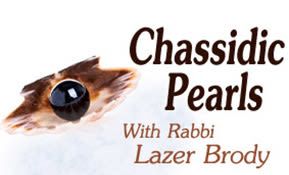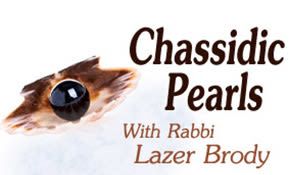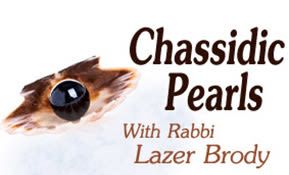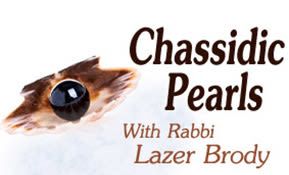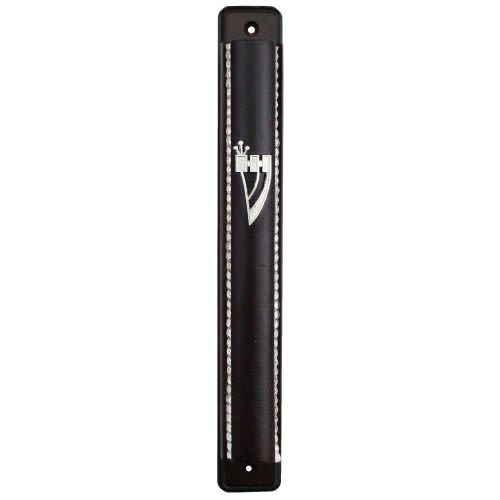
Vayishlach: Israel’s Best Defense
Esav's guardian angel wrestled all night long with our forefather Yaakov (Jacob). The angel failed to subdue Yaakov; even worse...

"And he saw that he couldn't defeat him, so he struck the palm of his thigh" (Bereishit 32:26).
Esav's guardian angel wrestled all night long with our forefather Yaakov (Jacob). The angel failed to subdue Yaakov; even worse, he was trapped in Yaakov's grasp and begged to be released.
The above passage is allegorical to the good inclination – Yaakov, and the evil inclination – Esav's guardian angel. Hashem creates them – the good inclination and the evil inclination – with equal strength, for if a person's innate capacities for doing good or evil are not equal, there can be no context of reward and punishment. As such, Esav's angel and Yaakov wrestled all night long with neither defeating the other. But, the good inclination – if it fights hard enough – has the inherent capability of restraining and controlling the evil inclination.
In light of the above concept, why does the Torah use such a seemingly strange expression as "the palm of his thigh"? Hebrew certainly doesn't lack adequate words describing every specific part of the anatomy. With the concept in mind that "Yaakov" is a reference to the good inclination while Esav's angel refers to the evil inclination, a particular teaching in Rebbe Nachman of Breslev's Likutei Moharan (I: 10.1) is especially intriguing: "When – heaven forbid – severe judgments hover over Israel, dancing and clapping of the hands mitigate them." Rebbe Nachman is telling us that in effect, dancing and hand-clapping are Israel's best defense.
Reb Natan of Breslev elaborates on Rebbe Nachman's above teaching and says (see Sichot HaRan, 131): "Dancing and clapping can mitigate the harshest oppression. Rebbe Nachman urged us to take his lesson at face value and actually make an effort to be merry on our joyous holidays such as Purim and Chanukah, as well as at happy occasions such as weddings. At such times, he said, we should make ourselves feel the true joy of obeying Hashem's commandments. We can make ourselves so elated that we actually dance and clap our hands in joy. This is what abates the harshness of decrees against us."
Harsh decrees are the result of our misdoings and our misdoings all stem from the evil inclination. Since dancing and clapping have the power to overturn harsh decrees and severe judgments, they protect a person against the evil inclination. We can therefore readily understand the Torah's language, "palm of his thigh", as a ploy that Esav's angel used in attempt to weaken Yaakov and to make him limp. "Palm" is indicative of hand-clapping, while "thigh" is the main part of the leg that symbolizes dancing. The act of Esav's angel striking the "palm of Yaakov's thigh" is therefore an amazing metaphor of the evil inclination's attempt to neutralize a Jew's clapping and dancing, for when a Jew is joyous, the evil inclination is virtually neutralized, as we'll see in the following allegory, with Hashem's loving help:
Baron Rustikov was a ruthless tyrant that terrorized the poor Jews of Tockavitz, a village he owned to the last house. He milked them dry with taxes, and when they couldn't pay, he mercilessly incarcerated them in a damp and foreboding underground cellar without food, water, or a ray of daylight. No one could resist the evil baron, for he had a private army of heartless Cossack brutes that were more than happy to shed innocent blood at the slightest pretext.
The Jews of Tockavitz were at a loss. Their cries to the heavens didn't seem to help; that is, until a Gypsy organ-grinder passed through…
The organ-grinder had a small but very active monkey that wouldn't sit still for a moment. The Gypsy would play a merry tune while his monkey danced. When the two-or-so minute jig was over, the monkey pranced among the spectators with a cup in hand; if a person refused to give the monkey a coin, the monkey would scamper up the victim's back in a split second and begin dancing on his head. It wasn't long before the unfortunate person parted with whatever change he had in his pocket.
One night, the Gypsy tried to steal a horse and wagon from Yudke, the village's brawny blacksmith, of all people. Yudke and a group of friends chased the hapless Gypsy for a mile down the road with pitchforks in hand while the terrified would-be thief ran for his life, abandoning everything he had, including the hand-organ and the monkey.
Simcha Zissel, the town jester with a wit as sharp as a razor seized both the monkey and the golden opportunity from Heaven. He became the Ukraine's first Jewish organ-grinder. "Now let the nasty baron send his henchman," Simcha Zissel bantered between Mincha and Maariv, while everyone at the local shtiebel gleefully gathered around him and his monkey. "They're in for a big surprise!"
The village posted sentries in all four directions. Any time the baron's debt collectors would head in the direction of Tockavitz, the sentries would alert Simcha Zissel, who was always ready for action and a good laugh, especially at the expense of the Baron's perpetually semi-inebriated Cossacks. Simcha Zissel would play a ditty, and the monkey would begin to dance. The amused debt collectors, hearing their favorite tune, remembered that they were thirsty. This time, the monkey's cup was filled with vodka – 100 proof – which Simcha Zissel readily poured for the baron's brutes. Before long, they'd forget about their boss and their bill-collecting, and turn their drunken wrath on each other, rather than on the gentle people of Tockavitz.
After three or four groups of the Baron's henchmen fell prey to Simcha Zissel and the monkey, the Baron decided that he could do quite well without Tockavitz's back taxes.
* * *
Harsh edicts and severe judgments fall by the wayside when a Jew is happy. Clapping hands and dancing feet have the power to elevate one's entire mind, body, and soul to a level of joyous holiness, thereby helping a person to cling to Hashem. The Yetzer Hara – the evil inclination – doesn't want us clinging to Hashem. He therefore makes a concerted effort to keep us from dancing and hand-clapping. That's the secret of his striking the "palm of the thigh" – obstructing our efforts to be happy, for when we sing, dance, and clap our hands, we repel sadness and depression, the Yetzer's strongest two weapons.
With joy, we defeat the Yetzer, and thereby hasten the full redemption of our people and the building of the Beit HaMikdash speedily and in our days, amen!


